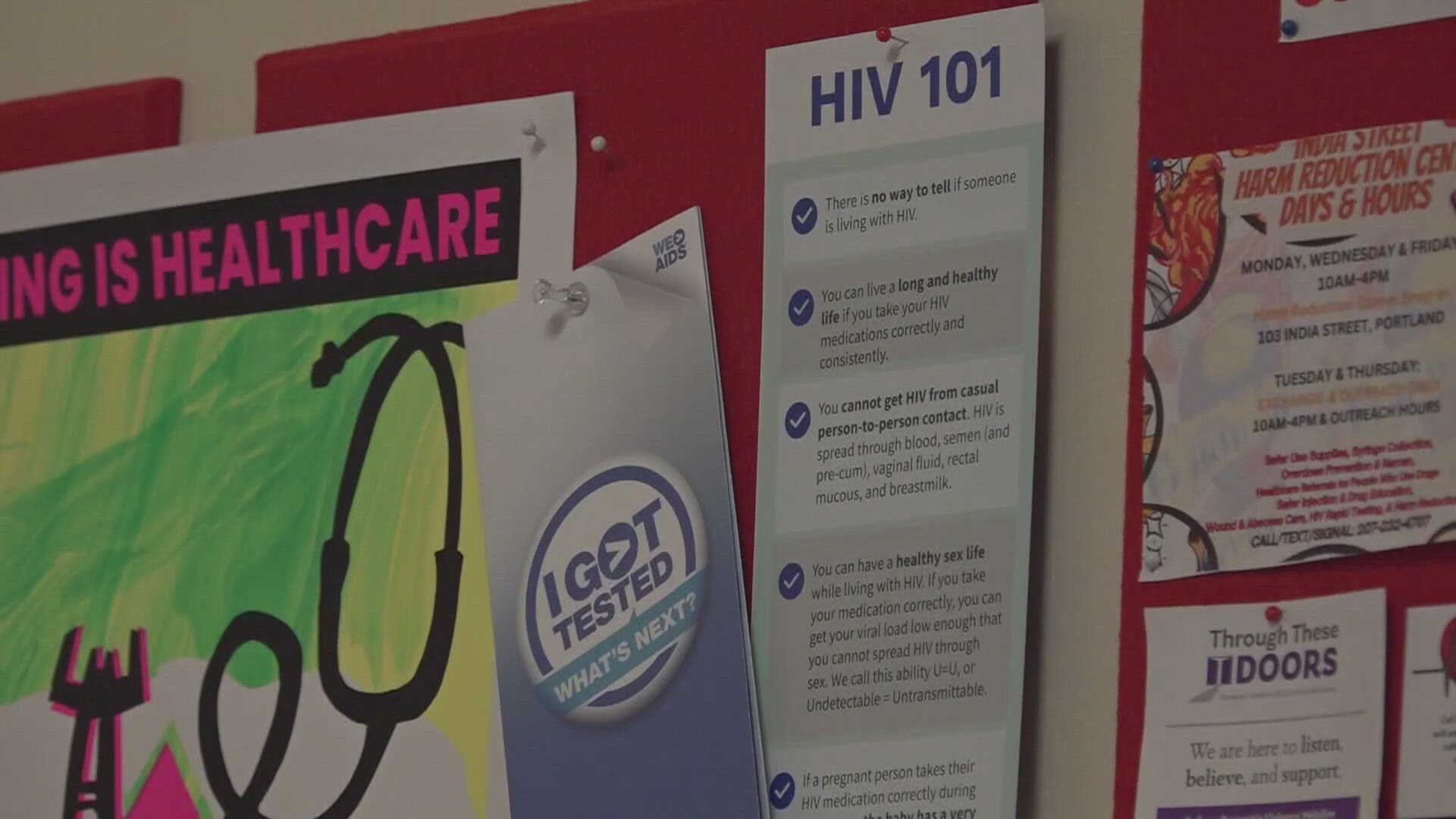BANGOR, Maine — After the Maine Center for Disease Control and Prevention reported a major spike in HIV cases in Penobscot County, community organizations and medical professionals are ramping up efforts to mitigate the spread.
Since October, 13 people have been diagnosed.
For the last five years, there was an average of just two new HIV diagnoses a year in Penobscot County.
"This is a priority for us to address," Jen Gunderman, director of Bangor Public Health said.
Gunderman said the cluster of HIV cases is concerning, particularly who’s impacted.
According to the Maine CDC, 100% of the cases were from injection drug use and each person has also contracted hepatitis C.
Eleven of the 13 people diagnosed were unhoused in the last year.
"Those are the patients that are often hardest to make sure they are getting routine primary care, and a lot of the times that's because of the stigma associated with being unhoused," Meagan Rusby, associate director of Clinical Pharmacy at Penobscot Community Health Care, said.
Leaders of Bangor Public Health said meeting people where they’re at is essential to fighting the outbreak.
The department offers walk-in testing for HIV and hepatitis C and goes out into the community to get at-risk people tested and connected to treatment.
"We try to provide the most accessible care to people who may not have access to healthcare otherwise," Jenny Doyle, public health program manager of Bangor Public Health said.
The Health Equity Alliance (HEAL) is working to reduce the stigma for unhoused people and people who inject drugs getting care.
"Specializing in earning trust and building relationships with people experiencing houselessness is primary," Josh D’Alessio, executive director of HEAL said.
HEAL has been providing medical case management for people living with HIV since 1987.
The nonprofit also runs one of the few syringe exchange programs in Penobscot County to prevent people from sharing needles.
"Making sure that we get new and sterile syringes in the hands of people who need them can help mitigate the spread of infectious diseases like HIV up to 50%," D’Alessio said.
To prevent HIV, medical professionals advise not sharing or reusing needles and using condoms. Those who are at risk of HIV can also prevent contracting it by taking pre-exposure drugs.
Though HIV is not curable, it is treatable. Health professionals said there is hope for people who are diagnosed.
"There are services; people can live long, healthy, happy lives with HIV, and we just want to make sure that people who have been particularly diagnosed as part of this cluster have access to those services.," Gunderman said.
The Maine CDC said it's working with community partners to increase access to HIV and hepatitis C testing, providing prevention and harm reduction services, and linking people diagnosed with HIV to medical care.

